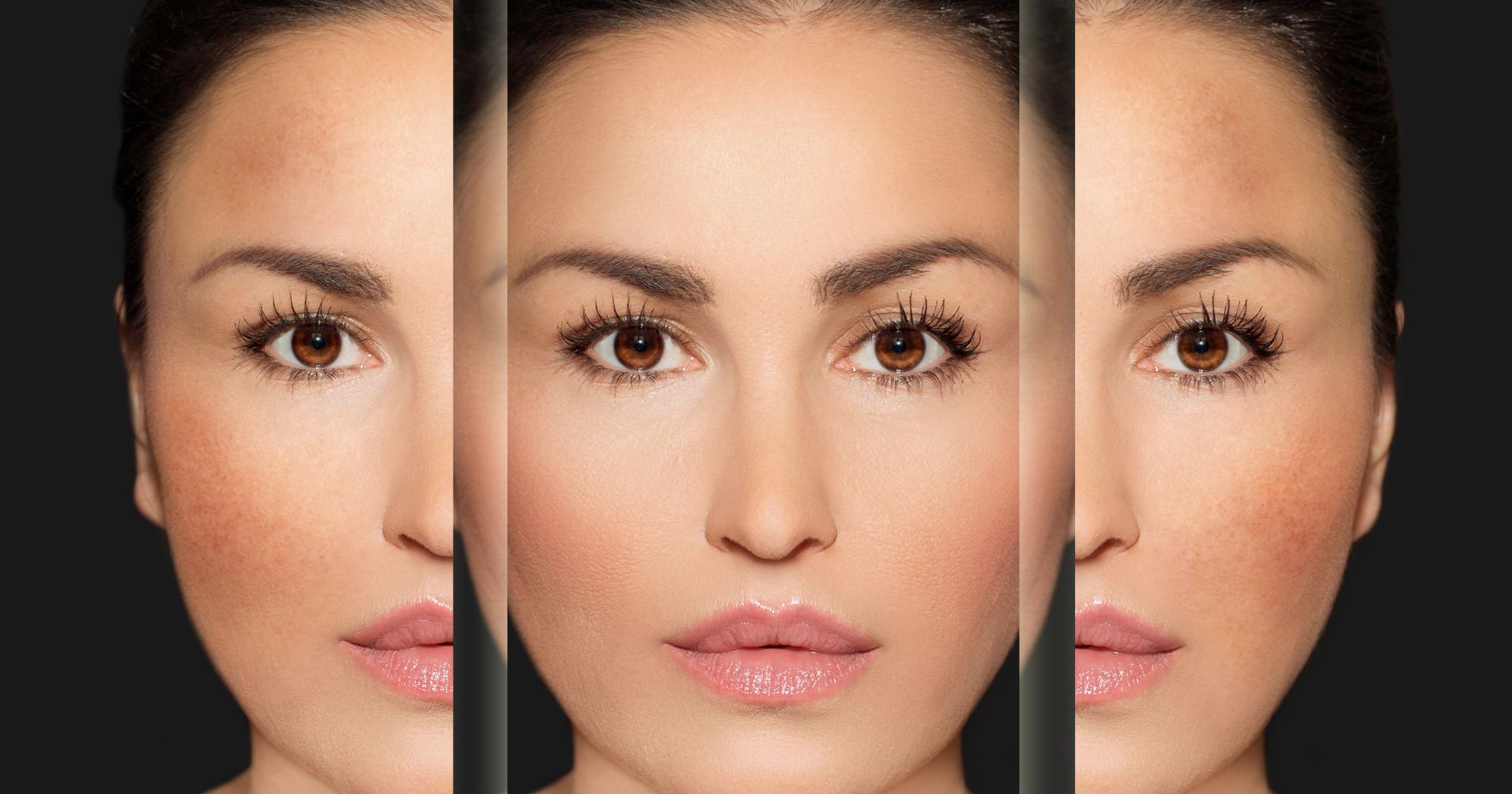Minimize Your Melasma,
Maximize Your Confidence
While not harmful or painful, these brown patches on your face may decrease your on your self-confidence.
At Chicago Skin Clinic, our board-certified dermatologists, Dr. Danny Del Campo and Dr. Danilo Del Campo, will customize a treatment plan using one or a number of therapies and procedures that best fit your unique needs.
So take back control of your skin — and your well-being — with melasma treatment at our Chicago office.
What Is Melasma?
Melasma is a common skin condition characterized by patches of dark or discolored skin typically appearing on your cheeks, forehead, nose, upper lip, and other areas of your face. Women are most likely to get melasma — especially during pregnancy or while taking hormonal medications — but melasma often affects people with darker skin as well.
What Causes Melasma?
While not entirely clear, experts typically believe that the overproduction of melanin — the pigment responsible for your skin color — triggers melasma.
Two main triggers that contribute to the development of melasma are:
- Sun exposure: Ultraviolet (UV) light from the sun stimulates melanocytes — which are the color-making cells in your skin — causing the cells to produce too much color. Just a small amount of sun exposure can cause your melasma to flare up, which is why your melasma may return and even worsen during the summer months.
- Hormonal changes: If you’re pregnant or going through menopause, you’re more likely to get melasma. Low testosterone levels — as well as birth control pills and hormone replacement medicine — can also trigger melasma. They create sensitivities in your skin that make you more prone to making more pigment
In addition to radiation and hormones, genetics and an allergic reaction to skincare products can also trigger melasma flare-ups.

Melasma Treatments in Chicago
At Chicago Skin Clinic, Dr. Danny Del Campo and Dr. Danilo Del Campo offer comprehensive and personalized treatment options to effectively treat and control your melasma.
With their expertise in dermatology, they understand the impact that melasma can have on your skin and self-confidence. Let’s take a look at some of the innovative therapies they can use to help you achieve a more even and radiant complexion.
Topical Therapy
Your first line of defense against melasma is often topical treatments. Dr. Danny Del Campo or Dr. Danilo Del Campo may recommend prescription creams or ointments containing ingredients such as hydroquinone, retinoids, customized compounds, or corticosteroids to reduce the production of melanin and promote skin cell turnover.
Chemical Peels
Chemical peels help control your melasma and minimize its appearance by exfoliating the top layers of your skin and encouraging new, healthier skin cells to grow.
At Chicago Skin Clinic, we’ll apply a comfortable solution to the dark, discolored, affected areas of your skin. The gentle acids in the solution — such as glycolic acid or salicylic acid — help lighten the dark patches and promote a more even skin tone.
In-Office Procedures
In some cases, our expert dermatologists may recommend in-office procedures like microdermabrasion to improve the texture and tone of your skin affected by melasma. These procedures involve gently exfoliating your skin's surface to remove dead skin cells and promote cell renewal.
Laser Therapies
If your melasma condition is advanced or more complex, Dr. Danny Del Campo and Dr. Danilo Del Campo may recommend laser therapy.
Laser therapies — such as intense pulsed light (IPL) or fractional lasers — can target the pigmented areas of melasma without causing damage to your surrounding skin.
These advanced treatments work by delivering light energy or heat to break up the excess melanin and stimulate collagen production in the affected areas of your face. Laser therapies can help fade dark patches and improve the overall appearance of your skin.
Oral Treatments
If your melasma is severe or has worsened — or if other treatments haven’t provided the results you expect or need — Dr. Danny Del Campo and Dr. Danilo Del Campo may prescribe oral medications.
Medications such as tranexamic acid work by regulating pigmentation and hormonal factors that may trigger your melasma.

Schedule Your Melasma Consultation Today
If you’re ready to control your melasma and reclaim your beautiful skin, schedule a consultation at our Chicago office today.
Dr. Danny Del Campo and Dr. Danilo Del Campo will assess your melasma, discuss the benefits of various treatment options, and customize a treatment plan tailored to your specific needs and goals.
With our comprehensive approach, you can manage your melasma and restore your radiant complexion — and your radiant confidence.
 SCHEDULE NOW
SCHEDULE NOW